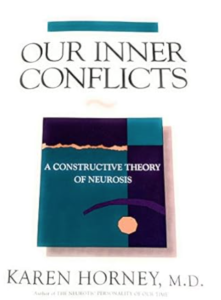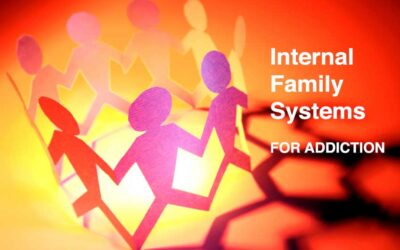When we generally think of depression, we think of it as the same phenomenon. People sometimes call it clinical depression, and professionals often call it major depressive disorder. However, depression is not really ONE thing, and there are as many variations of being depressed as there are people who are depressed.
Why is that? Because, in the majority of cases, depression is the individualized expression of a life struggle. It is simply like a fever that tells us there is something we need to look at or something about the way we live our life we need to resolve.
Sure, we cannot exclude the possibility that depression is once in a while the symptom of a brain in disarray, but this type of more biologically based depression is only a small subset of a much more diverse landscape of causes.
There are indeed a 1001 different depressions…
A 1001 Varieties of Depression:
Insecure Attachment:
One of the more common forms of depression is rooted in what we now have come to know as insecure attachments in childhood. Growing up with uncertainty about the availability and dependability of key people in one’s life robs a person of a secure core of knowing they will always exist and will always matter to others around them. As a result, this kind of person is perpetually fighting a sense of frightening loneliness, which they are always trying to distract themselves from. The frightening loneliness is the same kind of fear a child has who gets lost in the grocery store and isn’t sure if she will ever find her parents again. It rears its head when important relationships are severed or when the person feels abandoned. At such times this person may become severely depressed and lose any kind of hope for the future. They get lost in their sense of not mattering to anyone and find it hard to carry on when they feel their life has lost its meaning.
Loss of Self:
 Revolutionary Road is an excellent illustration of how a person can get caught in an empty life and get lost to oneself in the process[/caption]
Revolutionary Road is an excellent illustration of how a person can get caught in an empty life and get lost to oneself in the process[/caption]
Another kind of depression happens as a result of the emptiness that follows from a loss of clearly defined self. People with this kind of depression have become so accustomed to adapt to their circumstances, that they have lost touch with what they really need or want. For far too long, their agenda has been to keep others happy or avoid upsetting anyone, and now they feel empty and hollow because they have completely lost touch with their needs, wants, and passions. Their life starts to feel like it is just a performance. Many people lose themselves this way in their marriages or at work, where it feels like they are just filling a role, and not really living their life. You can find a good illustration of this kind of depression in the movie: Revolutionary Road.
Avoidant lifestyle:
Then there is the avoidant kind of depression, brought about by living a fear-drive life. This kind of person cuts off too many areas of their life to avoid failure or anxiety. Maybe they avoid risking altogether, and therefore also do not get the rewards of those who conquer their fears and face their challenges. This leads to a dull life robbed of excitement and thrills that come with being fully alive. This kind of person may shy away from the risk of rejection and therefore never experience romantic intimacy with another person. Or, they may avoid truly pursuing their career dreams because they are afraid of failing. The end result is an impoverished life and chronic sense of dysthymia.
Shame about Self:
Then of course we have the people who are too ashamed of themselves to fully let themselves be known and seen by another person. These people have mistaken unkind acts by others as a sign that they deserved mistreatment and are blemished, broken, damaged, or bad. Histories of sexual or physical abuse can often lead this kind of damaged view of oneself and the price of this view is depression. Such people end up not really relating to others fully. They may be afraid that others will reject them if they truly know them, or may ward off love from others, which they discredit or believe to be disingenuous. They cannot be nurtured by love because they cannot love themselves, and the result, of course, is a chronic sense of dissatisfaction with life and with oneself.
Internal Conflict:
 Karen Horney’s book “Our Inner Conflicts” is an excellent resource for people wanting to know more about potential conflicts that can lead to depression[/caption]
Karen Horney’s book “Our Inner Conflicts” is an excellent resource for people wanting to know more about potential conflicts that can lead to depression[/caption]
Another common variety of depression is the one caused by an internal conflict that leads a person to become stuck in an unresolvable dilemma. A person may for example feel guilty or fearful of choosing a career not condoned by their parents, but may also feel lack of motivation and lack of passion if they pursue the path laid out for them. Oftentimes these conflicts that lead to action paralysis or a sense being damned if I do and damned if I don’t, are entirely unconscious. A person may simply show up to their therapist and complain of feeling depressed without knowing why. Depression can in other words take the place of fully dealing with an uncomfortable dilemma that may involve making others unhappy, or may threaten a person’s established sense of self.
996 Other Depressions:
Add to this catalogue, hundreds of other varieties of depression and you will get the point that depression is not ONE illness, nor is it reducible to a simple catchall diagnosis that must be dealt with the exact same way. In fact, for different people, different life events can trigger a depression. If your life is built around security needs, the ending of a relationship may be the trigger. If you gain your self-esteem from being the life of the party, losing favor with certain friends may be the trigger. If your life is about achievement, getting fired might do the trick. It is therefore important to not get lost in the diagnosis, but to see what the diagnosis reveals about the person beneath the diagnosis.
Heeding the Message of Depression:
Depression is not simply a problem to be treated with anti-depressants. It is a starting point for self-examination. It tells us we are “stuck” in some area of life, cut-off from our true feelings and needs, or unable move on from traumatic experiences of our past. It tells us we must get our life back, and reclaim it from whatever forces are keeping us back.
In the short term we may be able to medicate the problem away, but rest assured, the depression will return until its message has been received. No one in the history of mankind has ever been able to run away from themselves.
 About me: I am Rune Moelbak, Ph.D., a psychologist in Houston Texas, specializing in the psychodynamic treatment of depression. To learn more about my psychological approach to depression, please visit my website, where you can access additional resources.
About me: I am Rune Moelbak, Ph.D., a psychologist in Houston Texas, specializing in the psychodynamic treatment of depression. To learn more about my psychological approach to depression, please visit my website, where you can access additional resources.







